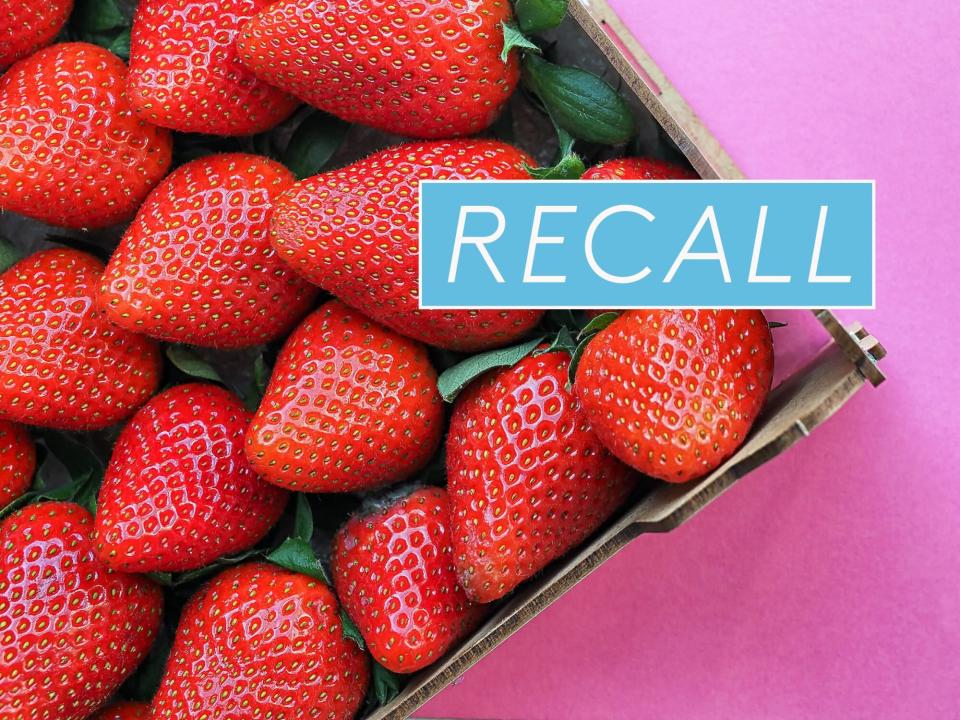Strawberries Sold at Walmart, Trader Joe's, and More Recalled Due to Hepatitis A Outbreak
Check your strawberry stash! The United States Food and Drug Administration and the Centers For Disease Control are currently investigating a multistate outbreak of hepatitis A that is likely linked to fresh organic strawberries. The berries in question are branded as FreshKampo and HEB, and would have been purchased between March 5, 2022, and April 25, 2022. They were sold nationwide, as well as in Canada.
While the potentially contaminated strawberries are currently past their shelf life, consumers who purchased strawberries between the aforementioned dates and then froze them with the intention of consuming them later, should not eat them. The berries were distributed and sold across the country at several grocery store chains, including but not limited to: Aldi, HEB, Kroger, Safeway, Sprouts Farmers Market, Trader Joe's, Walmart, Weis Markets, and WinCo Foods.
The FDA notes that if you are unsure of what brand of strawberries you purchased, or where you bought them from prior to freezing them, the strawberries should be thrown away immediately and not consumed.
According to epidemiologic and traceback data, these fresh organic strawberries are a likely cause of illness in this hepatitis A outbreak. The investigations show that cases in California, Minnesota, and Canada report having purchased fresh organic strawberries branded as FreshKampo or HEB prior to becoming ill. The illness onset dates range from March 28 – April 30, 2022.

Jackie Bale/Getty Images
Thus far, the FDA reports that there are 17 hepatitis A cases in the United States linked to these strawberries, along with 12 hospitalizations. Califorfnia has reported 15 cases, while Minnesota and North Dakota have reported one case each.
If consumers believe they purchased the contaminated strawberries, ate them in the last two weeks, and have not been vaccinated against hepatitis A, the FDA recommends they immediately consult with their health care professional to determine whether post exposure prophylaxis (PEP) is needed. PEP is recommended for unvaccinated people who have been exposed to hepatitis A virus in the last two weeks because vaccination can prevent a hepatitis A infection if given within 14 days of exposure. Those with evidence of previous hepatitis A vaccination or previous hepatitis A infection do not need PEP.
RELATED: How to Store Strawberries So They Won't Spoil Quickly
Contact your health care provider if you think you may have symptoms of a hepatitis A infection after eating these fresh organic strawberries, or if you believe that you have eaten these strawberries in the last two weeks.

